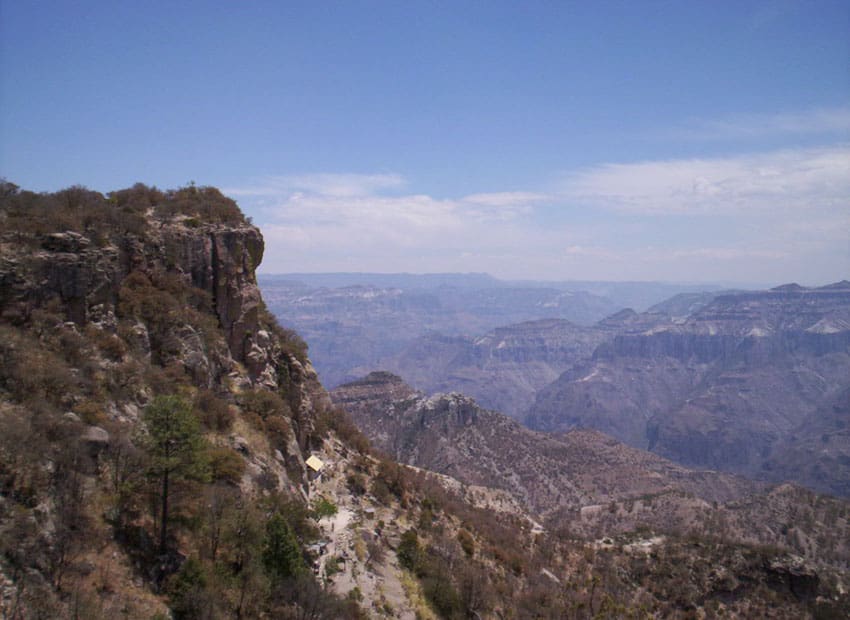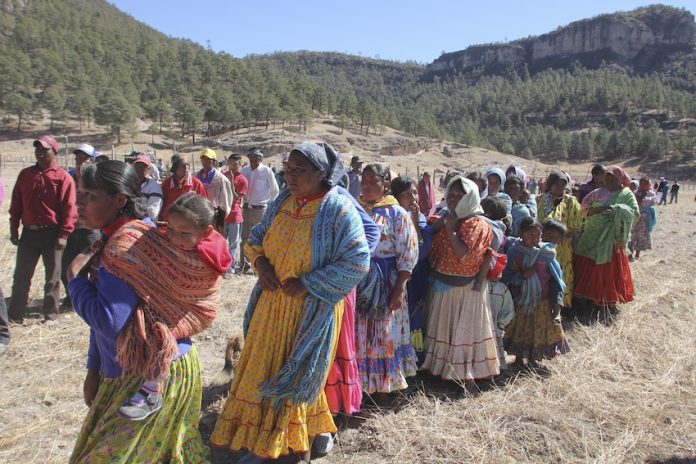Freezing winter temperatures and famine are driving an increase in the migration of Indigenous Rarámuri people from Chihuahua’s Sierra Tarahumara to cities such as Ciudad Juárez.
Although every winter sees some Rarámuri migration, El Universal newspaper reports that numbers have surged this year, as temperatures in their native mountain villages plunge as low as -12 degrees Celsius. The extreme cold is adding to problems of food shortages caused by the summer’s severe drought.

“For about a month now, we have seen people from the mountains come down a lot,” Rosalinda Guadalajara, an Indigenous rights activist in Ciudad Juárez, told El Universal. “When the harvest failed, many said they got only a pinch of corn. Many people have left there to look for work, and because of the cold.”
In a press conference on Tuesday, the Chihuahua’s Health Minister, Gilberto Baeza Mendoza, said that the ministry has detected 67 cases of severe malnutrition in babies and children under the age of five in the Sierra Tarahumara this year. Of these, 16 died and six remain in hospital.
Baeza added that medical consultations for Indigenous children in the 19 municipalities of the Sierra Tarahumara increased from 344 in 2022 to 486 in 2023 so far. Infant malnutrition is most severe in the municipalities of Urique, Guadalupe and Calvo.
Chihuahua’s state government has tried to address the crisis by distributing around 96 tonnes of basic grain to 1,200 families in villages of the Sierra Tarahumara, but this has not halted the migration.

Guadalajara told El Universal that the largest Rarámuri exodus has been from the municipalities of Carichí and Cuautémoc, with most families heading to Ciudad Juarez. On arrival, many of these migrants stay with family in Rarámuri colonies at the edge of the city, some of them permanently.
Once they arrive in the city, the Rarámuri (many of whom aren’t native Spanish speakers) often encounter discrimination, and struggle to access government aid.
“There are people who, because they don’t know the [Spanish] language, lend people their card to take out support payments and are victims of abuse; others charge them for taking the money out,” Guadalajara explained.
As a result, many Rarámuri migrants are forced to survive through begging or selling sweets, handicrafts and herbs on the street.
With reports from El Universal and La Jornada Maya
